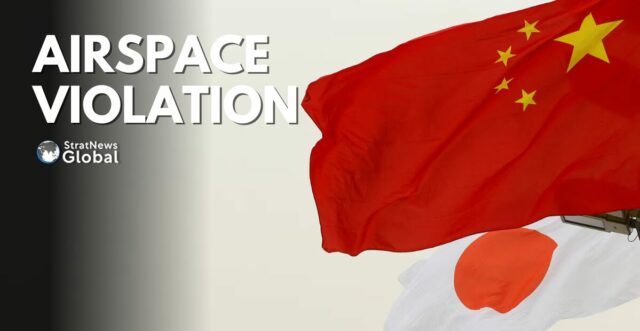Japan’s Chief Cabinet Secretary, Yoshimasa Hayashi, expressed strong condemnation on Tuesday regarding the violation of Japanese airspace by a Chinese military aircraft. The incident, which occurred on Monday, prompted Japan to scramble fighter jets and summon a Chinese embassy official in Tokyo to lodge a formal protest.
Serious Violation Of Sovereignty
In a press conference, Hayashi stated that the airspace breach was “utterly unacceptable” and not only constituted a serious violation of Japan’s sovereignty but also posed a significant threat to the nation’s security. The Japanese government, he assured, is closely monitoring the increasing military activities by China near Japan and is fully prepared to respond to any further airspace violations.
Japan’s defence ministry reported that a Chinese Y-9 reconnaissance aircraft flew over the Danjo Islands, located to the west of Kyushu, for approximately two minutes on Monday morning. This incident marks the first known breach of Japanese airspace by a Chinese military aircraft, although other Chinese government planes have previously violated Japan’s airspace in 2012 and 2017.
Diplomatic Response And China’s Position
Following the airspace violation, Japan’s government summoned a Chinese embassy official to express its protest. However, Hayashi declined to provide details about the diplomatic discussions between Tokyo and Beijing.
In response to Japan’s actions, the Chinese foreign ministry acknowledged the incident but indicated that relevant departments in China were still investigating the situation. Lin Jian, a spokesperson for the ministry, emphasised that China has no intention of invading the airspace of any country and noted that communication between the two nations is ongoing through established channels.
This incident adds to the ongoing tensions in the region, where increasing Chinese military activity has raised concerns about the security and stability of Japan and its neighbouring countries. Japan’s firm stance on the matter underscores its commitment to protecting its territorial integrity and sovereignty.
(With Inputs from Reuters)
Research Associate at StratNewsGlobal, A keen observer of #China and Foreign Affairs. Writer, Weibo Trends, Analyst.
Twitter: @resham_sng





